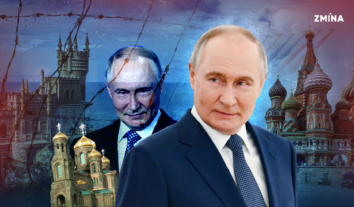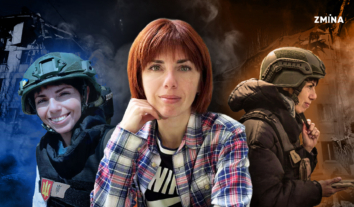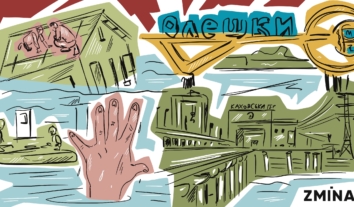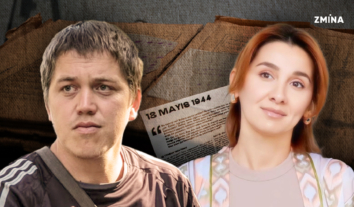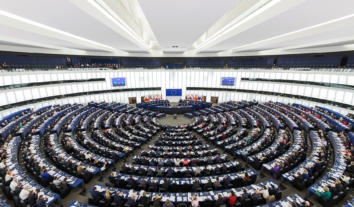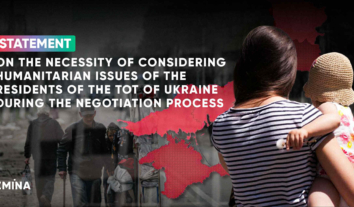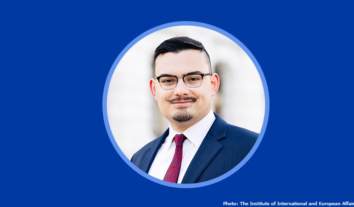Lesia. Helping IDPs is lifestyle
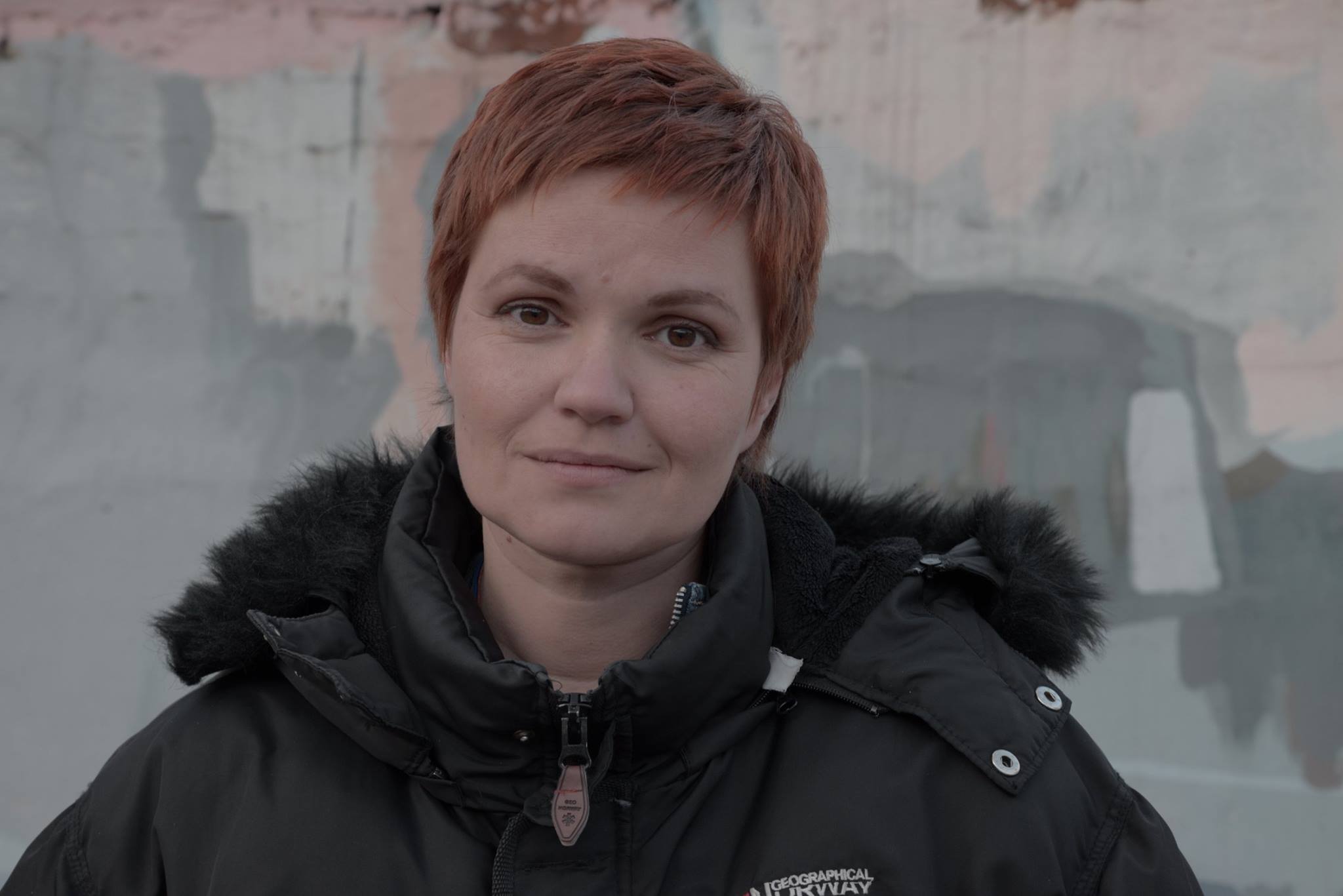

Lesia is the mother not only of her four children. Solving problems, helping, supporting, inspiring is about her. Helping people at the support center for IDPs in the Frolivska Street in Kyiv has become her lifestyle.
We continue publishing the stories of people, who have lost their homes as a result of the conflict in eastern Ukraine and Crimea, as well as of those, who have lent a helping hand in difficult times.
My story with the IDPs started when #the boarding school from Slovyansk was evacuated to the village near my cottage house. I went to see how they were going on and jumped in there.
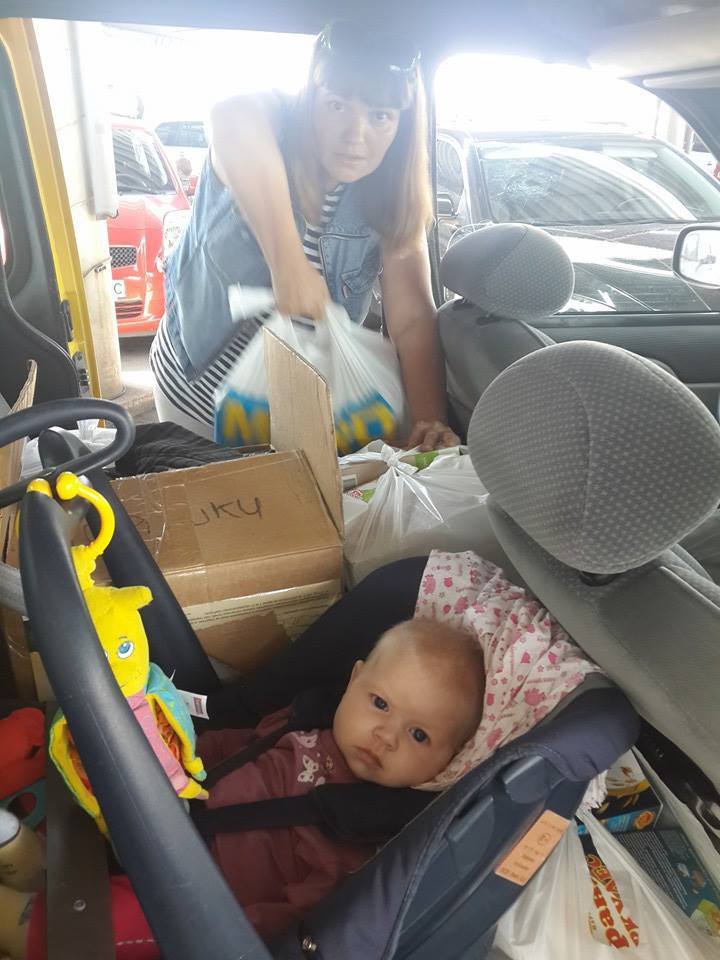
Stage two, wow, I see Crimea residents coming to the health resort near my house, I need to visit them also. I and my friends are not coping anymore, so we reach people through Facebook asking for the necessary things and deliver them by post on our own. There are so many things I have no free space to store them in my apartment, but I’m glad I’ve found like-minded people.
Now it is a lifestyle. I come home to sleep only, #my children are growing up here, too. The youngest has her play-pen in the kitchen. My husband says: “Well, it is clear that she will start to walk in Frolivska Street, but I wish we did not marry her off there.”
This place requires all your strength, primarily spiritual. It is important for me to have a comfort zone here. People cannot quarrel, cry, lose courage here. #It’s not enough to give people clothes and food. You should make people realize that they are not alone, that you hear them and that they are in a comfortable environment as these things are much more important.
My motivation is very simple: #I have four children, I need to have a country which they will not be afraid of living in, where people will love each other. It is a very serious motivation. And, God willing, the war will end a little bit faster. Maybe I’ll have time to have a fifth child, so I need to settle everything quickly.
#It is a terrific feedback when you see confused people coming and one month later they return and tell they have found a job, an apartment and new friends.
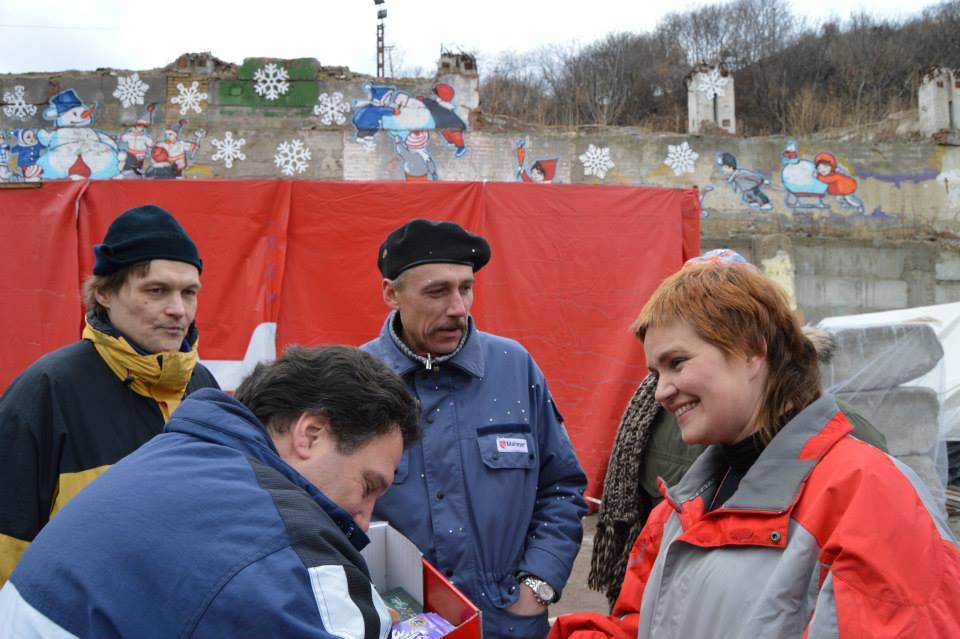
I also come across some absolutely stunning cases. Recently, one boy said: “I was learning how to play French horn at home. And here I have no instrument, no teacher.” After the very first post on Facebook, over one night, we found four instruments and a school of music with a good teacher. His mother came and said: “You cannot imagine how my child is happy now. The child remains to be the child.”
The majority of people who work with us are volunteers from eastern Ukraine. #They come for help, stay to assist us for an hour, first, then for two hours, then move permanently, become our close friends, re-fill our lives. I broke my car yesterday so now I drive a car of our volunteer from Donetsk.
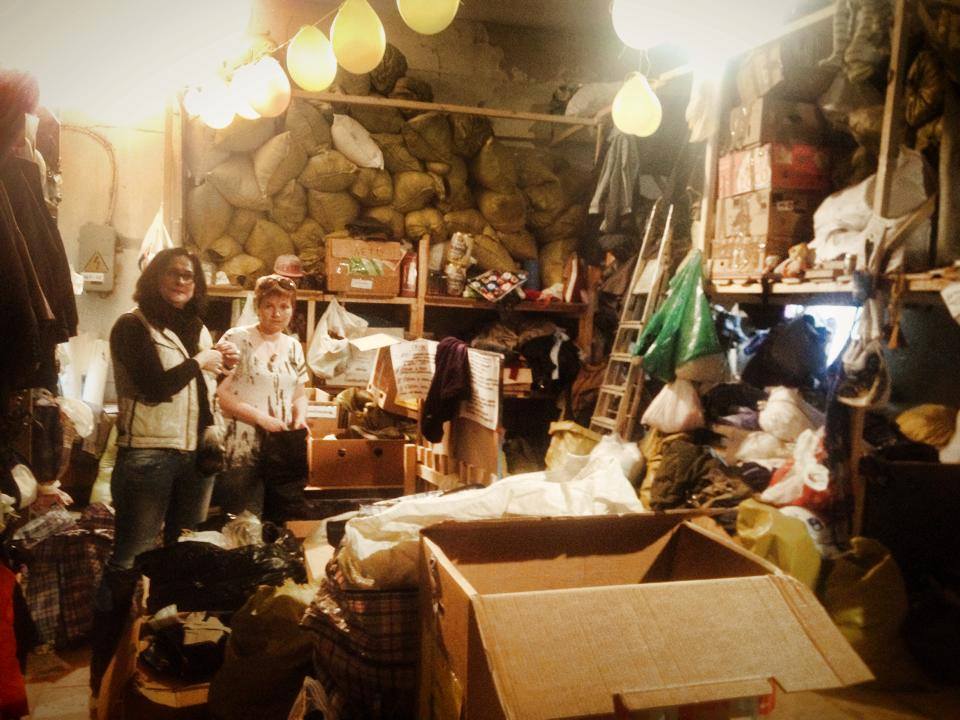
I do not care where people come from. Different people are also living in my Kyiv. But they are our “home”, “familiar”… But they are, and we have got used to them and do not make much fuss about them. #If people are drowning, you must first pull them out and then ask for their passports.
People, who have arrived here, do not have some unusual household problems that we might not face earlier. #They fall ill, they give birth to babies, they die, they have to be buried but there is no place in the cemetery. They cannot find the clothes of proper size, cannot find a job, or find a kindergarten for a child. The only thing that differs us greatly is that they have experienced a deep trauma and perceive everything much deeply.
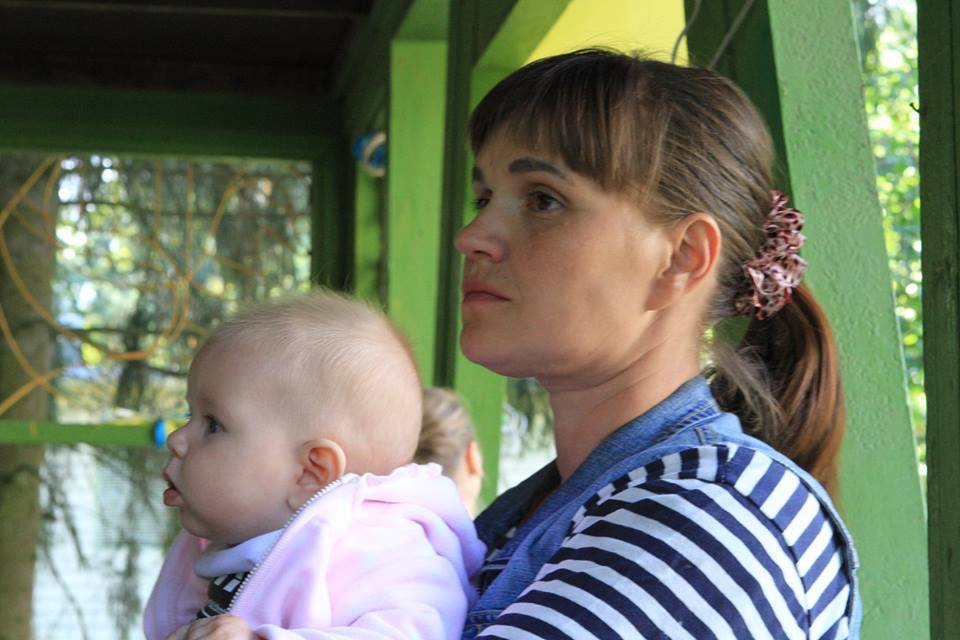
We and the state live parallel lives. We do not bother each other and do not help much. It’s difficult for the state, I understand it. We have a very solid corrupt system built for years and it is difficult to destroy it. #Even decent people, and there are some very decent people, who come to this system, start to struggle with it not doing something useful in it.
The story of Lesia is presented within the framework of the exhibition “My Place”, organized by the Educational Centre “Space of Tolerance” and the Congress of National Communities, supported by the Royal Netherlands Embassy. The authors of the texts are Kyra Kreyderman and Uljana Ustinova. The photos were made by Dana Verstak and taken from the family archive.

